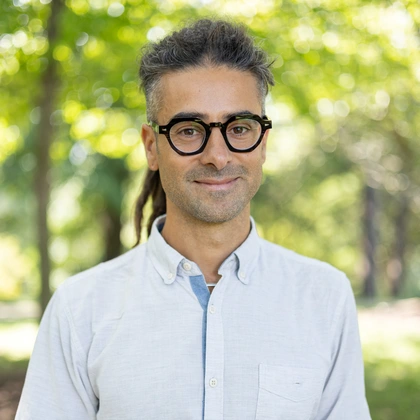
Washington, D.C.— Isotope geochemist Andrea Giuliani joins Carnegie Science’s Earth and Planets Laboratory as a new Staff Scientist. In this role, he will continue to advance high-level research on the composition and evolution of the deep Earth and the formation of metal deposits that are critical to the “green” energy transition.
Giuliani arrives from ETH Zurich, where he held a senior scientist position examining the isotopic fingerprints of samples from the Earth’s mantle and crust to understand global cycling of carbon and other volatile—or easily evaporated—elements throughout the planet and their changes over deep time. Prior to that, he co-headed up a diamond research group at the University of Melbourne, where he received his Ph.D. in 2013.
Beyond the geochemical evolution of Earth’s mantle, he also studies the origin and evolution of magmas during their trajectories to volcanoes at Earth’s surface, as well as the processes leading to formation of economic quantities of diamonds, gold, and rare and not-so-rare metals, such as nickel. And he is committed to developing new techniques to measure isotopic abundances in minerals and to pushing the boundaries of existing techniques that will facilitate research in any field of geochemistry and cosmochemistry.
“My work requires a multidisciplinary approach that combines mineralogy, petrology, geochemistry, geochronology and geophysical modeling,” he explained. “To pursue my research goals, I have learned to incorporate a wide array of methodologies, push the boundaries of what’s possible with existing techniques, and explore new methods for gleaning information from isotopes.”
Over the course of his career, Giuliani has demonstrated leadership by mentoring dozens of students and postdocs, convening several scientific meetings and discussion sessions, and serving in various editorial capacities for different scientific publications, including an active role in the advisory board of the Journal of Petrology.
“We are thrilled to welcome Andrea to the Earth and Planets Laboratory and look forward to the breakthrough research that his bold, boundary-crossing approach will enable,” said Director Michael Walter. “Taken together, his diverse suite of research pursuits helps reveal a picture of the complex geochemical and geophysical dynamics that underpin our planet’s habitability.”
